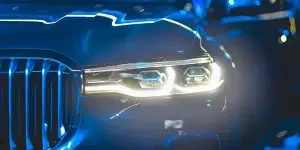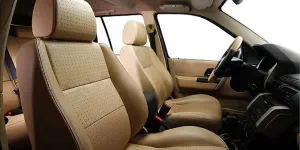At the end of November, Tesla’s VP of AI Software, Ashok Elluwamy, confirmed on the X platform that the 13th version of Tesla’s Full Self-Driving (FSD) has begun rolling out to users.
CEO Elon Musk retweeted Elluwamy’s post. He previously claimed that FSD v13 is expected to be over five times better than v12.5.5.3.
According to the official release notes, the latest v13 version has made several key improvements for vehicles on the AI4 (HW4) platform compared to the previous version. Tesla’s autonomous driving engineer, Arek Sredzki, noted that the new system truly achieves the “parking-to-parking” (P2P) functionality.
FSD v13 not only significantly enhances capabilities but also becomes more streamlined. A member of Tesla’s AI team mentioned that FSD v13 is “completely rewritten,” resulting from the collaboration of Tesla’s data, vision, compiler, system, firmware, user interface, quality assurance, and project management teams.
“FSD v13 is as sleek and clean as the Raptor 3 engine.”
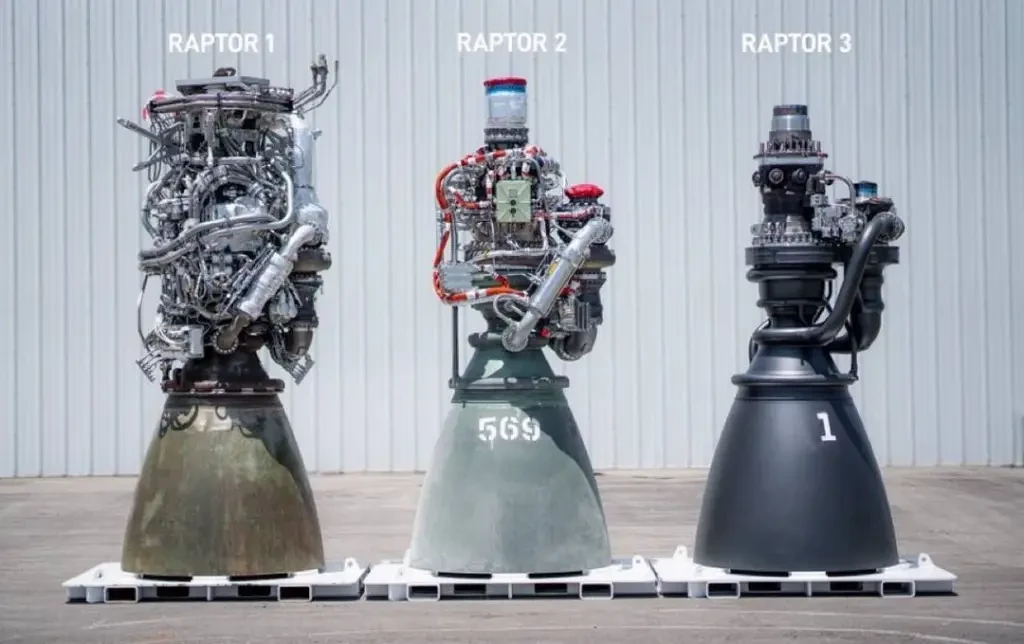
Engineer Sredzki demonstrated the “point-to-point” driving capability of FSD (supervised mode) v13.2 through a video. It shows the system can be activated while the vehicle is parked. In the video, the vehicle first reverses to create space from the car in front, then maneuvers around it.
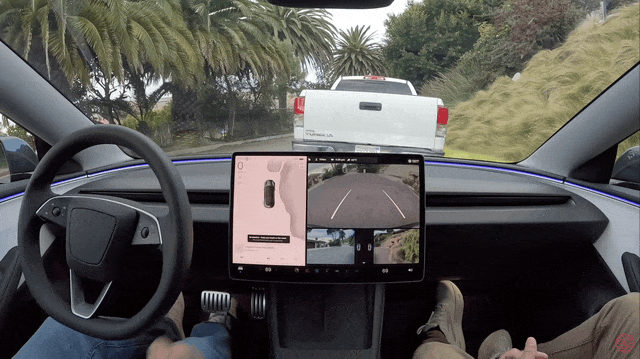
Throughout the journey, Sredzki’s vehicle encountered no issues, and FSD smoothly navigated through “old scenarios” like unprotected left turns and intersections.
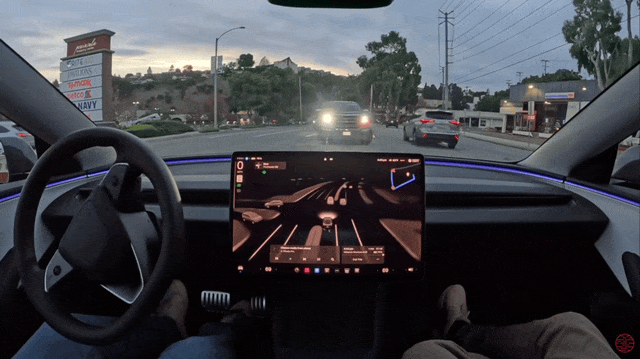
Along the way, Sredzki’s vehicle encountered no issues, and the FSD was able to smoothly navigate through “old scenarios” such as left turns and intersection crossings.
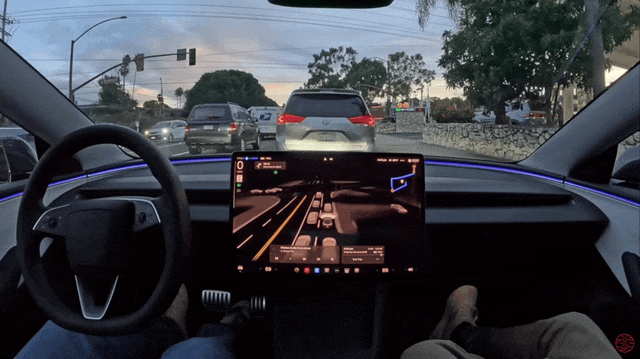
The highlight of the video is at the end, where the vehicle autonomously enters a parking lot as it approaches its destination.
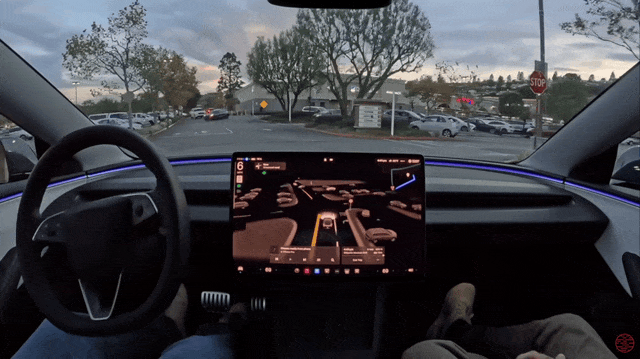
It then finds a parking spot near the destination and stops, completing an intelligent drive from start to finish.
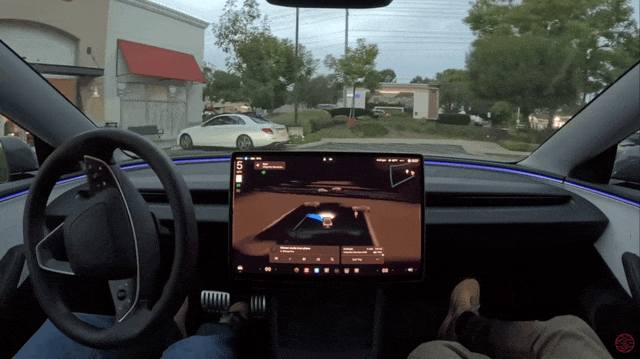
An experienced FSD beta tester, @AIDRIVR, mentioned that although FSD 12.5 was already smoother than most Ubers he had ridden, FSD V13.2 is even smoother, “better than any Uber I’ve ever been in.”
Another beta tester, @Chuck Cook, also emphasized the smoothness of V13.2, noting that the new FSD behaves more like a human driver. Especially during U-turns, if it can’t complete the turn in one go, the car will reverse and try again, performing a “K turn.”
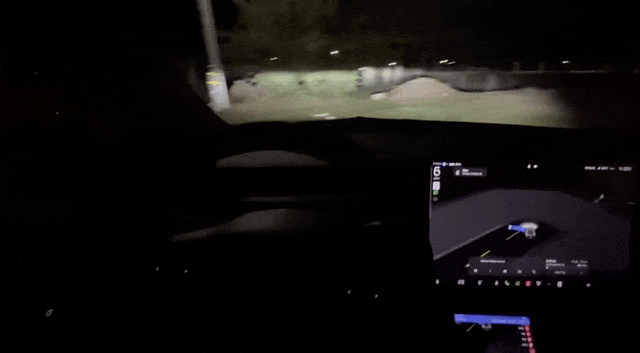
By the way, remember back in October 2024, during a Huawei intelligent driving communication event in China, Huawei revealed that this feature would soon be available on ADS3.0.
Returning to FSD, many users found that after updating to FSD v13.2, the new system can drive in snowy conditions without any manual intervention and accurately park and unpark, maintaining “point-to-point” intelligent driving capabilities. Even at night, it can autonomously drive into a supercharger station for charging.
Of course, plugging and unplugging the charging cable still needs to be done manually.
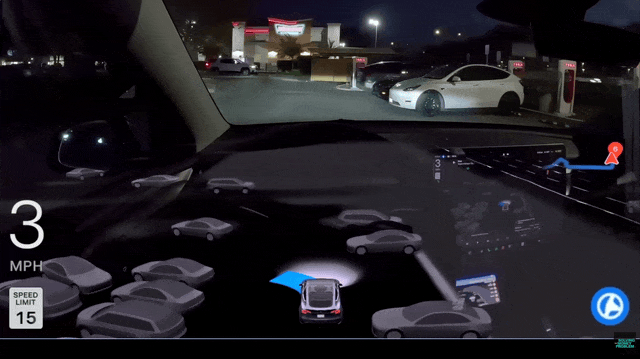
Based on feedback from engineers and users, the current FSD can handle most driving tasks, but in terms of execution efficiency, human drivers still have the edge. However, Musk’s expectation for FSD is not speed and efficiency; he has always emphasized “safety.”
In October 2024, Musk stated that FSD would be “better than human drivers” by early 2025. Tesla announced that FSD v12.5 successfully increased the average miles per intervention (MPI) by 100 times throughout 2024.
Data from the third-party website FSD Tracker also shows improvements in FSD stability. The data indicates that after the Tesla FSD v12 update, the percentage of trips without any user intervention increased from 47% to 72%, and the average MPI rose from 116 miles to 333 miles.
For FSD v13, Tesla aims to improve MPI by 5 to 6 times compared to v12.5, ultimately achieving a 1000-fold improvement throughout 2024.
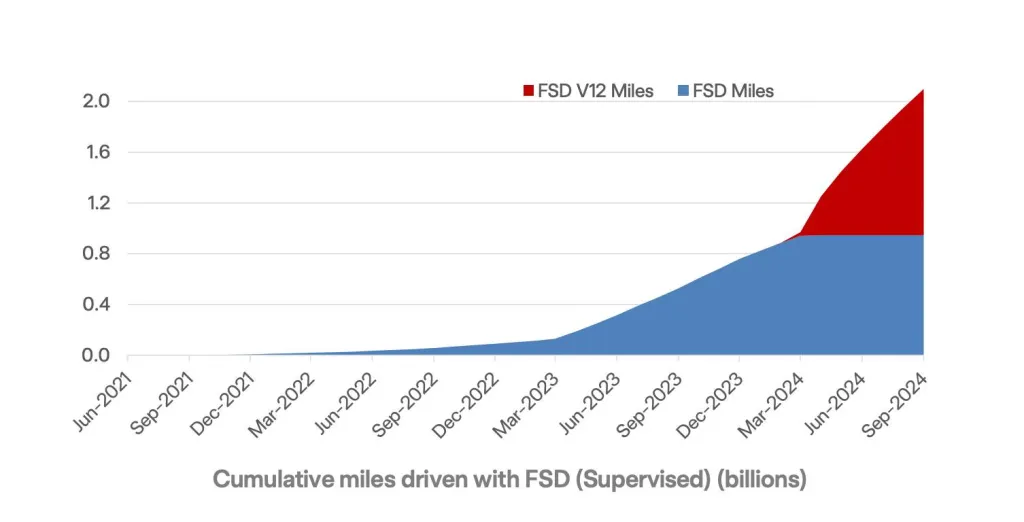
Additionally, Tesla’s improvements to MPI are expected to continue into 2025, with projections to surpass human levels by the second quarter (latest by the third quarter) of 2025. Of course, human drivers don’t have interventions, so this refers to the probability of traffic accidents caused by human factors.
As everyone knows, in October 2024, Musk launched a futuristic-looking autonomous taxi called Cybercab. Recently, it has started being displayed in stores across various parts of Europe.
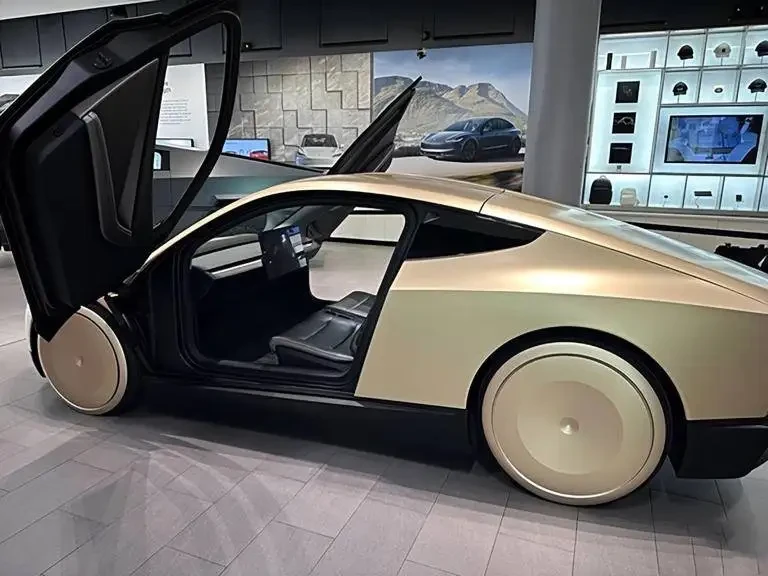
Tesla has indeed taken a significant step towards autonomous taxis, and this step is not just the Cybercab, but a real ride-hailing service. Tesla has begun offering an FSD-based ride-hailing service for its employees working in the San Francisco Bay Area. Employees can use a dedicated app to request a ride, allowing FSD to take them anywhere in the Bay Area.
Musk also mentioned that once this service is open to the public, passengers’ personal profiles will automatically sync upon entering the vehicle, enabling personalized in-car settings. Features like multimedia, navigation, and air conditioning can also be adjusted via the app.
Tesla plans to launch this service to the public in 2025, with Texas being the first state due to its relatively lenient requirements for autonomous driving test permits. Meanwhile, Tesla is also working to gain approval in California.
However, it should be noted that since the current FSD’s MPI has not yet reached the “better than human drivers” level as Musk mentioned, there will still be safety drivers in the main driver’s seat of those vehicles.
Source from ifanr
Disclaimer: The information set forth above is provided by ifanr.com, independently of Alibaba.com. Alibaba.com makes no representation and warranties as to the quality and reliability of the seller and products. Alibaba.com expressly disclaims any liability for breaches pertaining to the copyright of content.
